Earn Your BFA in Acting From the Sargent Conservatory of Theatre Arts
Webster University’s Sargent Conservatory of Theatre Arts Bachelor of Fine Arts degree in Acting trains students to perform in a wide range of styles and with complex material, both classical and current. Our focus on storytelling skills prepares our students for success on stage and on screen. Voice and speech, movement and acting classes form the core curriculum every semester. As the training sequence progresses, students hone and apply the principal tools taught in the core to an array of stylistic approaches, from Greek and Shakespearean verse to the early realism of Chekhov and Ibsen, and from the farces of Molière and Oscar Wilde to the contemporary plays of Dominique Morisseau and Paula Vogel.
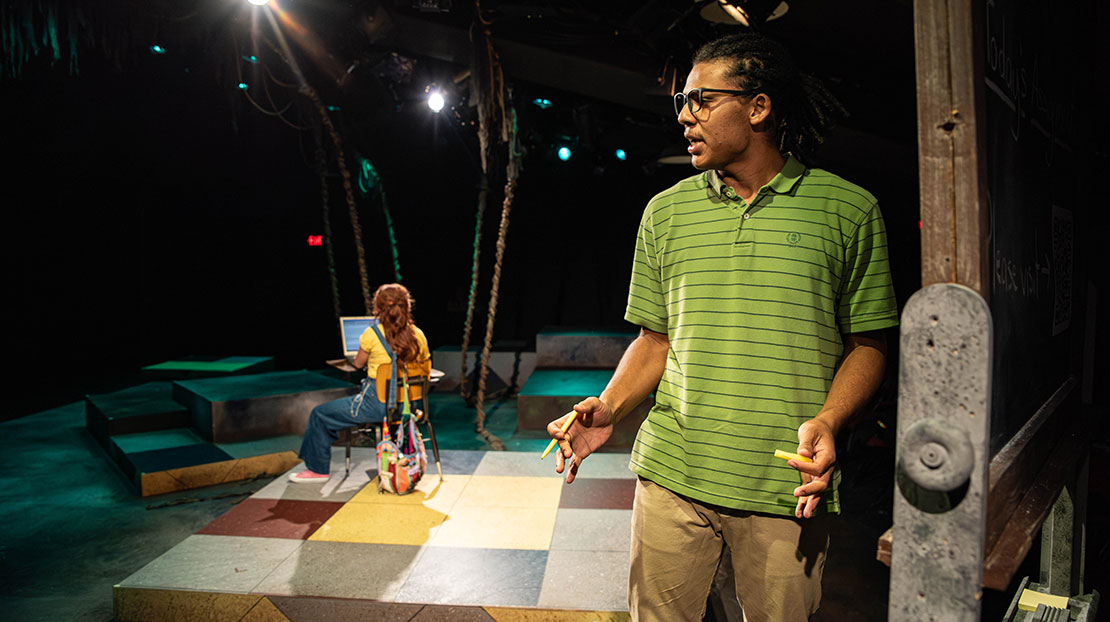
Blood at the Root, 2023
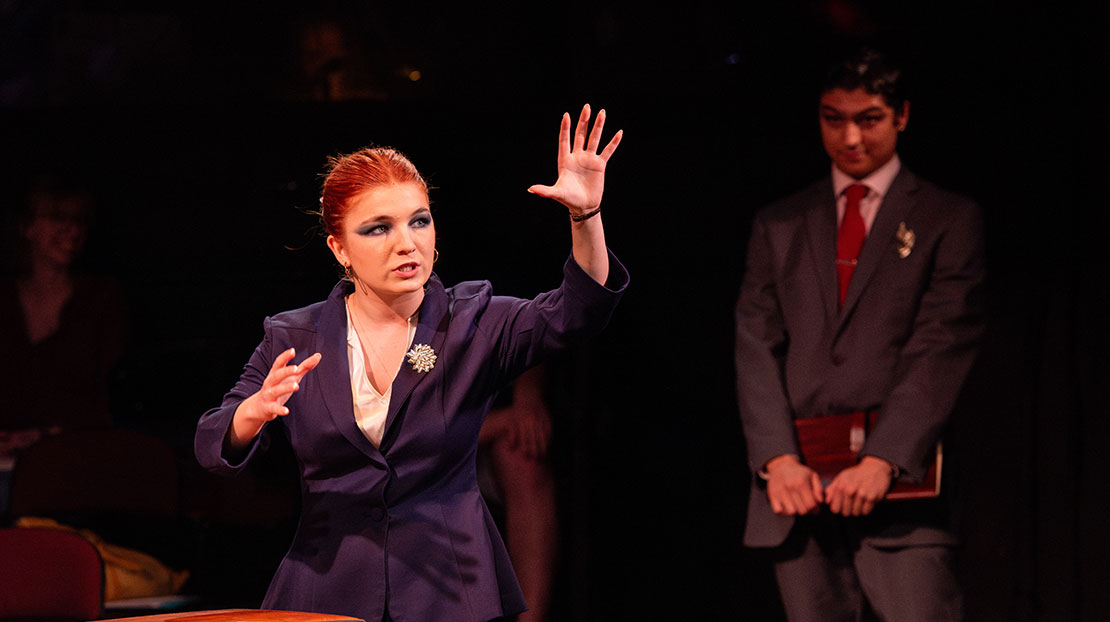
Last Days of Judas Iscariot, 2024
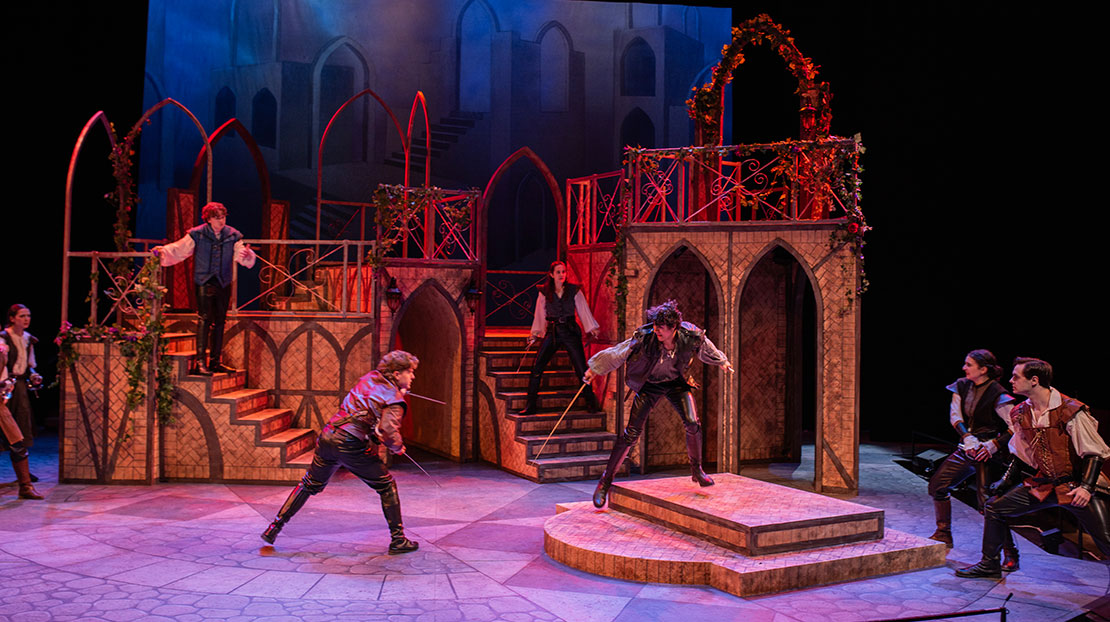
Romeo and Juliet, 2023
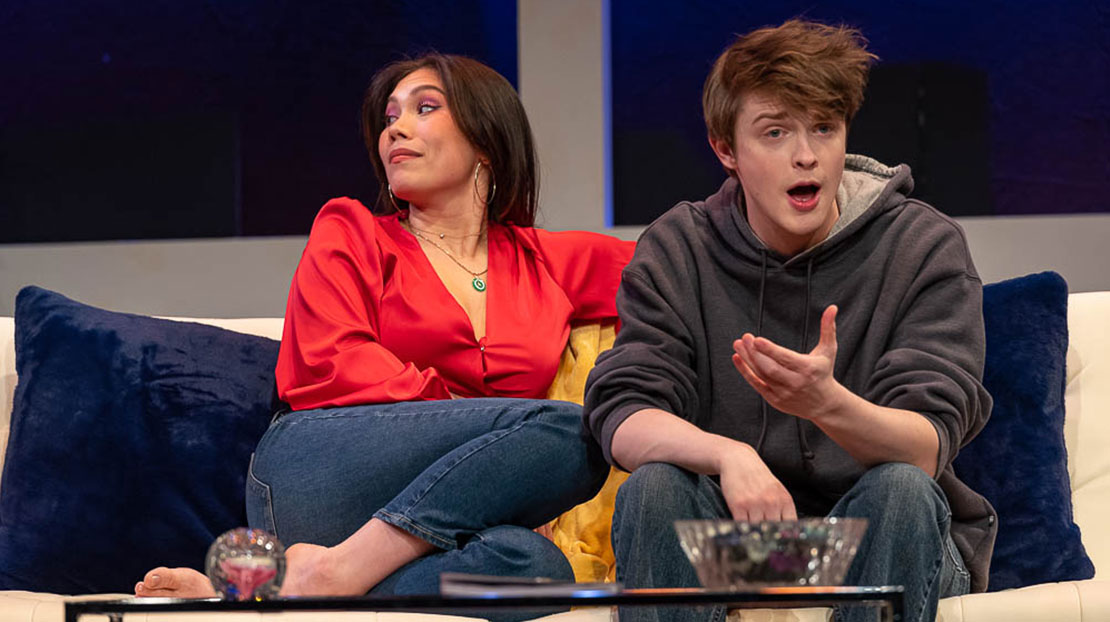
Seminar, 2022
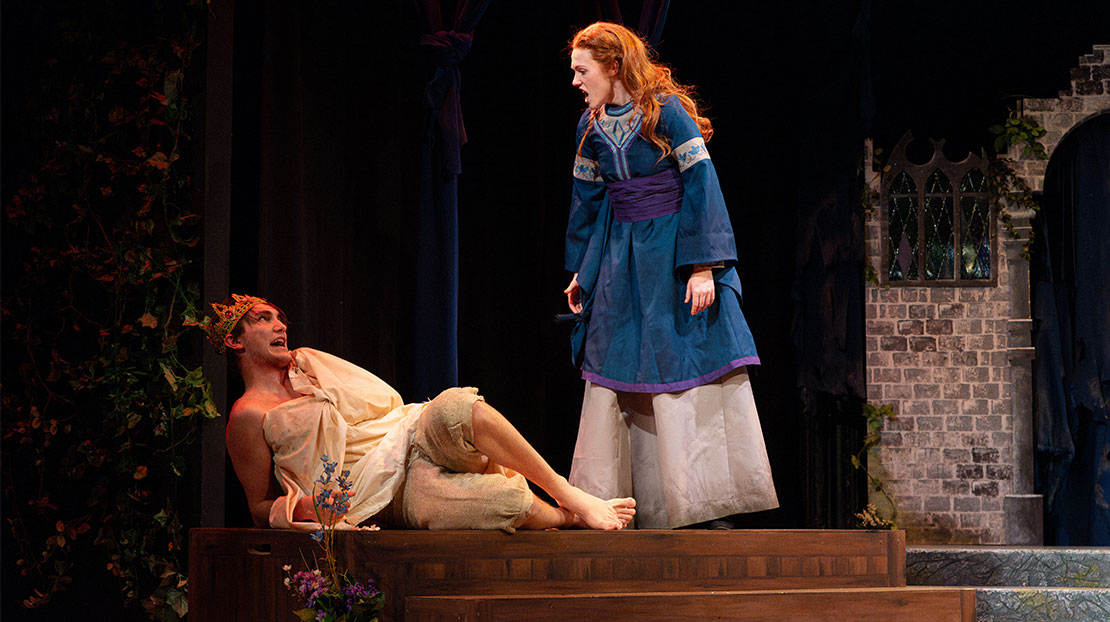
Silence, 2024
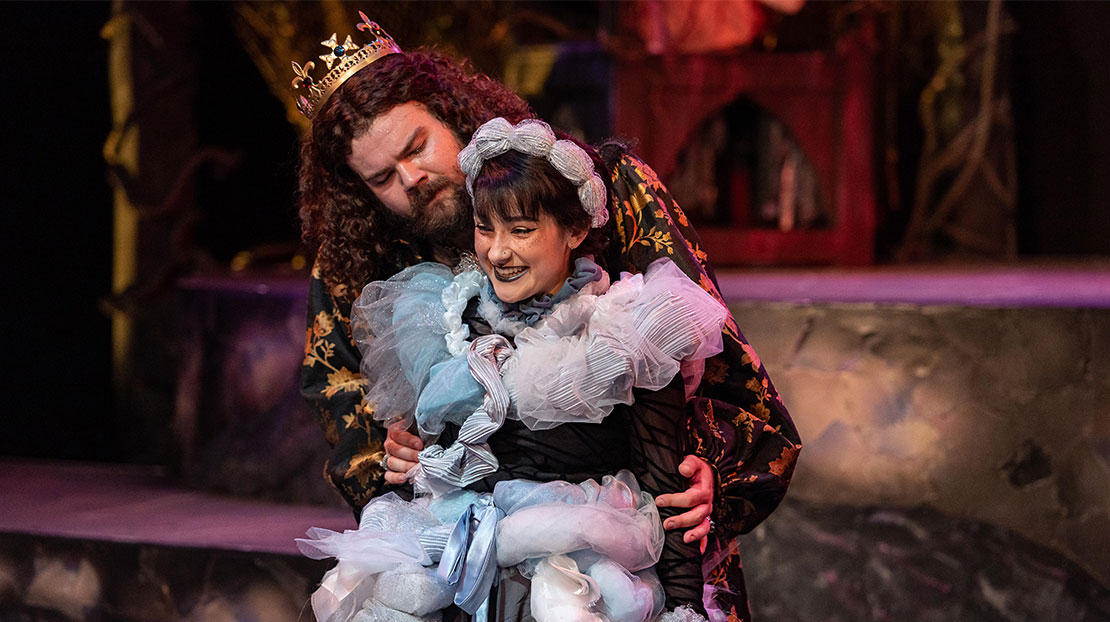
Sueño, 2022
Choose Webster for Your BFA in Acting
Train with Professional Partners
The Sargent Conservatory of Theatre Arts partners with six professional companies to give you unparalleled acting experience. Work alongside professional theatre artists, stage managers, directors and designers in the city’s thriving theatre scene on real productions, with opportunities for casting in major productions and crew positions. Study in a city that boasts an internationally renowned opera company and orchestra, a vibrant music scene and a number of excellent art museums.
Mentorship from Experienced Faculty
Sargent Conservatory’s faculty members are working professionals and dedicated educators committed to nurturing their students’ artistic growth. Learn more about the individual accomplishments of our faculty. Their work includes Broadway, off-Broadway, regional and international credits, as well as projects in a variety of other fields (film, television, voice-over, corporate events).
Webster's Sargent Conservatory Curriculum
Our first-year program encourages students to discover what it means to be an actor and to establish the basis for a personal technique. First-year students do not perform publicly but do present scene work and songs for Conservatory at the end of the year. Classes during the first year of training typically involve:
- Acting
- Voice and speech
- Movement
- Text analysis
- Makeup
- Theatre history
Note: Acting majors may choose to take classes in the Departments of Music and Dance as electives, including private voice lessons, throughout their four years of training.
In their second year, performance majors stretch and strengthen basic techniques by applying them to highly contrasting styles of dramatic literature. Second-year students join the casting pool and are now eligible to perform in the Conservatory season. They also comprise the casting pool for the directing students’ “Every Tuesday” series of performances, 20-minute plays presented almost every Tuesday in the semester. Classes during this second year of training typically involve:
- Acting: contemporary theatre, Ibsen and Chekhov
- Voice and speech: Greek and Shakespeare
- Movement: neutral mask, yoga and pilates
- Song study
- Audition techniques
- Theatre history
Note: Acting majors may choose to take classes in the Departments of Music and Dance as electives, including private voice lessons, throughout their four years of training.
Work in contrasting styles becomes even more ambitious in the third year of training. Students continue to be eligible for casting in the Conservatory season, as well as for opportunities to perform with our professional partners. Classes include:
- Acting: Shakespeare, 17th- and 18th-century Comedy of Manners, Edwardian drama
- Voice and speech: dialects
- Movement: period movement, stage combat, Alexander technique
- Directing
- Improv
Note: Acting majors may choose to take classes in the Departments of Music and Dance as electives, including private voice lessons, throughout their four years of training.
The fourth year aims to provide a smooth transition into professional practice. Students remain eligible for both Conservatory casting and casting opportunities with our professional partners. In Spring, students will participate in Senior Showcase, presenting work to casting agents and directors. Classes typically involve:
- Acting: contemporary scene work, Showcase preparation
- Voice and speech: dialects
- Movement: clown
- Acting for the camera
- Audition techniques and professionalization
- Improv
- Advanced directing electives
Note: Acting majors may choose to take classes in the Departments of Music and Dance as electives, including private voice lessons, throughout their four years of training.
BFA in Acting
Find out more about the overall curriculum, electives, learning outcomes and more.
Theatre Scholarships
Almost every full-time undergraduate student at Webster University receives some sort of financial aid. Webster’s Office of Financial Aid is committed to making a college education affordable.
Additionally, the Sargent Conservatory of Theatre Arts awards annual scholarships designated specifically for theatre majors. In 2023-2024, the department awarded over $225,000 in scholarships to its students. Most of these awards are reserved for our third- and fourth-year students. Every year we also allot some scholarships to first-year students. These awards are made in consultation with the recruiting faculty and with the Office of Financial Aid. There is no separate application process. Please contact Andrew Laue, Associate Director of Fine Arts Admissions at lauear@webster.edu, for additional information.

“I want to spark change by provoking thought through performing, which hopefully, leads to action. I want people to walk out of the theatre more empathetic to the world around them from when they walked in.”

BFA in Acting, ’24

Apply Today for the BFA in Acting

Webster's Sargent Conservatory of Theatre Arts is committed to your artistic growth and academic success. The first step is to fill out an application.
Contact Joanna Battles, Head of Recruitment for Performance Programs
Get Started on Your Fine Arts Degree in Acting
Take the next step toward earning your BFA in Acting — we are here to help you get started.
Explore
Learn more about our academic programs and our main campus and locations.
Engage
Connect with our admissions counselors and academic advisors.
Apply
Apply to Webster and take the next steps for financial aid and scholarships.
Contact the Admissions Office to Find Out More
If you have more questions about the program, your application or other enrollment-related inquiries, contact our Admissions Office.
Call 314-246-7800 or 800-753-6765 or send an email to admit@webster.edu.



